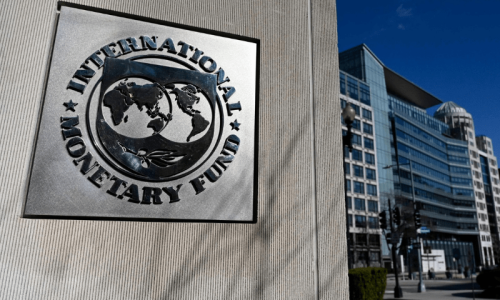As a part of the medical profession, I am aware of the pressures one faces in the workplace. The emergency room is buzzing with patients round the clock, demanding treatment and asking to be prioritised. Often, patients expect doctors to be God-like, capable of diagnosing and treating the disease in the same breath. Doctors are also expected to provide medications that act more like magic potions than pharmaceutical drugs. In case a medical practitioner fails to do so, he or she is snubbed and pronounced a good-for-nothing. Of course, despite the high expectations, doctors make mistakes too, which in the medical profession can prove to be fatal.
The fact is, doctors work with a very thin margin for error. In Pakistan, medical practitioners have earned a bad reputation due to an increasing number of reported cases of negligence. Most of our hospitals lack proper equipment, and far too many lack properly trained physicians, which makes it all worse.
Recently, a nine-year old child lost his life during an orthopedic surgery. According to the parents, the child was in good health and walked to the operation theatre only to be pronounced dead a little later. I watched the news horrified and convinced that something had gone wrong with the administration of anaesthesia. This was later confirmed by statements from the hospital staff. Unfortunately, the report never made it any further than a news flash on a private television channel. The reason: the child’s parents were probably not influential enough and the matter was hushed without a word. Moreover, since this was far from the first incident of criminal negligence in Pakistan, it probably wasn’t news-worthy enough to keep on the tickers.
Then, on the second day of Eid-ul-Azha, three-year-old Imanae Malik was taken to the Doctor's Hospital,Lahore, for treatment for minor burns. According to reports, Imanae was repeatedly injected with anaesthesia, and the accumulated dosage caused her death within minutes of administration.
Since then Imanae’s father has launched a campaign and accused the hospital staff of criminal negligence. The family has also taken legal action and is willing to proceed further into the matter. This is indeed a bold and much-needed step that could help to bring about a change and ensure that, in the future, matters such as these are handled with utmost care.
Accountability is the first step towards clarifying what really happened. Without accountability, it will be impossible to analyse the situation. Updates from the campaign site suggest that the committee has confessed to criminal negligence on part of the duty doctor. An in-depth analysis shows that the hospital authorities were completely negligent since the doctor accused was a part-timer appointed for night emergencies. The hospital authorities remain unaware of the person responsible for appointing the doctor involved in this case.
A look at the details suggest that this is a classic example of criminal negligence, an affront that should not be tolerated and instead eliminated through sustained vigilance in all public and private hospitals, and, in particular, emergency rooms.
Imanae is not the only one to suffer at the hand of negligence, and if we don’t take action now, such incidents will continue. Strict laws need to be implemented in order to make health professionals more cautious and to minimise the margin for error. At the same time, we must acknowledge that negligence isn’t intentional either. It is important to distinguish between taking a stance criminal negligence and persecuting health professionals.
I would like to take this opportunity to request that the people educate themselves, remain aware of their rights, and most importantly, stop expecting doctors to act like gods, because they are only human. Patients are also in a position to reduce the cases of criminal negligence. They should know that it is their right to demand an explanation about treatments and understand any complications that may arise from medications or procedures that are administered to their loved ones.
As a nation, let’s not trust blindly and let’s make an effort to report any incidents of negligence to ensure that no parent has to lose another child to negligence. Although we cannot bring Imanae back, our support will help educate people about their rights and make hospital authorities and health professionals more cautious about misconduct.
Sana Saleem is a Features Editor at BEE magazine and blogs at Global Voices, Pro-Pakistan her personal blog Mystified Justice. She tweets at twitter.com/sanasaleem.
The views expressed by this blogger and in the following reader comments do not necessarily reflect the views and policies of the Dawn Media Group.
Sana Saleem is the co-founder of Bolo Bhi & Stories Beyond Borders.
She's on the board of advisory for Courage Foundation, Edward Snowden's legal defence fund.













































